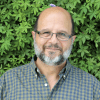
- This article first appeared on December 16th, 2015 online in NationalHealthExecutive.com in the UK
- Read the article and then watch our video explaining more about the work we’re doing with Nesta in the UK to help innovate healthcare
- Guest blog by Halima Khan, Executive Director of the Health Lab at Nesta and Nadim Matta, President at Rapid Results Institute.
The scale of the challenge facing UK public services in the coming decade is unprecedented. Not only is the population projected to increase by almost five million by 2020, but within this growing population are increasing numbers of older people at specific risk of developing one or more long-term health conditions. Health and care systems across the country need to transform at pace to meet the future demand for services, and do so within dramatically tightened margins. For the commissioners and providers tasked with navigating their way to a sustainable healthcare system, this is a formidable challenge – a feeling akin to that of a ship caught in the high seas, in the midst of a perfect storm.
That said, all too often, we fail to make effective use of our most valuable treasures in bringing about change: the skills, experience and passions of people. Nesta and the Rapid Results Institute are pioneering a new approach to transforming complex health and care systems; working with frontline teams to achieve meaningful change in just 100 days. By focusing on working with those closest to the action, the aim of the ‘People Powered Results’ approach is to empower front-line staff to collaborate, innovate and experiment and, by doing so, drive change from the bottom-up.
To date, the Rapid Results Approach has proven to achieve dramatic impact across a range of societal challenges – from HIV/AIDS prevention and family planning in sub-Saharan African countries to homelessness in the US. Inpartnership with Nesta, for the first time ever in the UK, this approach is being tried in the health sector – challenging frontline teams with support from local leadership to find innovative ways to improve care for people and reconfigure the system based on their direct insight.
A pilot currently underway at Mid Essex CCG typifies the key elements of the programme. Teams in the Mid Essex System set themselves ‘unreasonable’ 100-day goals to significantly reduce unplanned hospital admissions for the frail population, both by preventing falls at home and other common causes of visits to A&E and by reducing conversion rates from A&E attendance to hospital admissions. By setting such short timeframes but with a deliberate focus on action, frontline teams broke through mental and organisational barriers and developed new habits of thinking and working.
Enlisting the support of system leaders and key decision-makers at the start of each project is pivotal. Top executives inspire the 100-day frontline teams to overreach when they set their goals, they give them the space to innovate and act, and they encourage them to persist, even when faced with inevitable setbacks and roadblocks.
To date, the Mid Essex prototype has successfully energised the health and care system, rapidly moving it towards a deeper level of integration and collaborative working, and the emerging data indicates a positive reduction in unplanned admissions. Of course, it’s essential to remember that their story is a work in progress – but, for now, we can learn much from the approach and the combination of pathway redesign and whole systems transformation. It offers us rich insight into how health and care systems locally and nationally can transform at pace.
We all know there is no silver bullet to the challenge health and social care systems face. We also know that master plans can often take too long to materialise or, sometimes, fall short of expectations. It is therefore essential, we believe, to think differently about how we engage, empower and build the resilience of the multitude of stakeholders that make up our health and social care system.
This can begin by giving staff the permission and support to try new ways of working based on what they think could work – whether that’s different working hours and team composition or trialling alternative patient pathways or encouraging more collaboration with the voluntary sector. Through this we can inspire a new culture of front-line and citizen engagement. And, in doing so, we begin to create a space where cross-boundary collaboration, fast-paced experimentation and pervasive and continuous discovery are the norm – and this is fundamental to bringing about real and meaningful change in a system that urgently needs it.
Halima Khan and Nadim Matta will be talking about the People Powered Results program in more detail at ‘The Future of People Powered Health’ event on 9 February 2016 in London.
- Health
- Housing & Homelessness
- Health
- Housing & Homelessness


